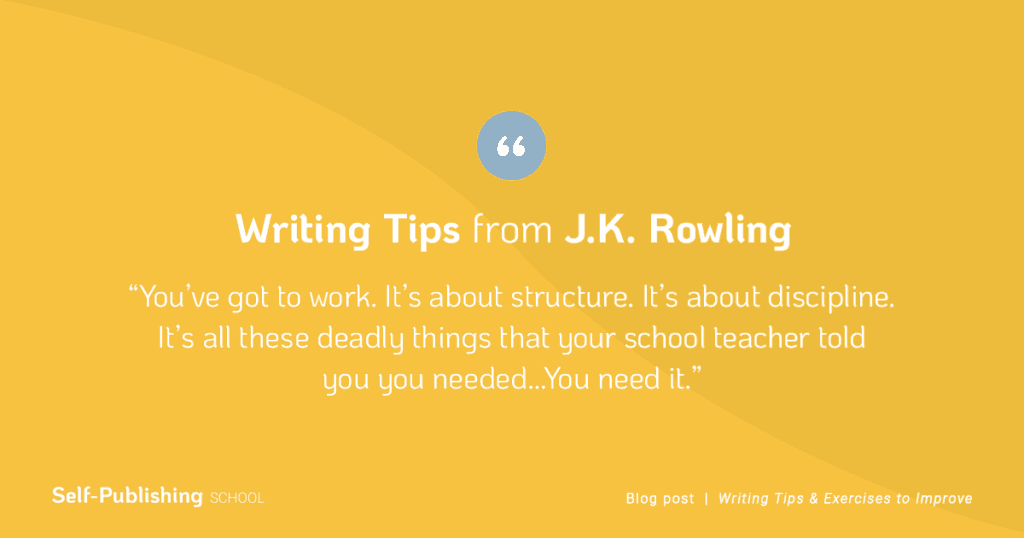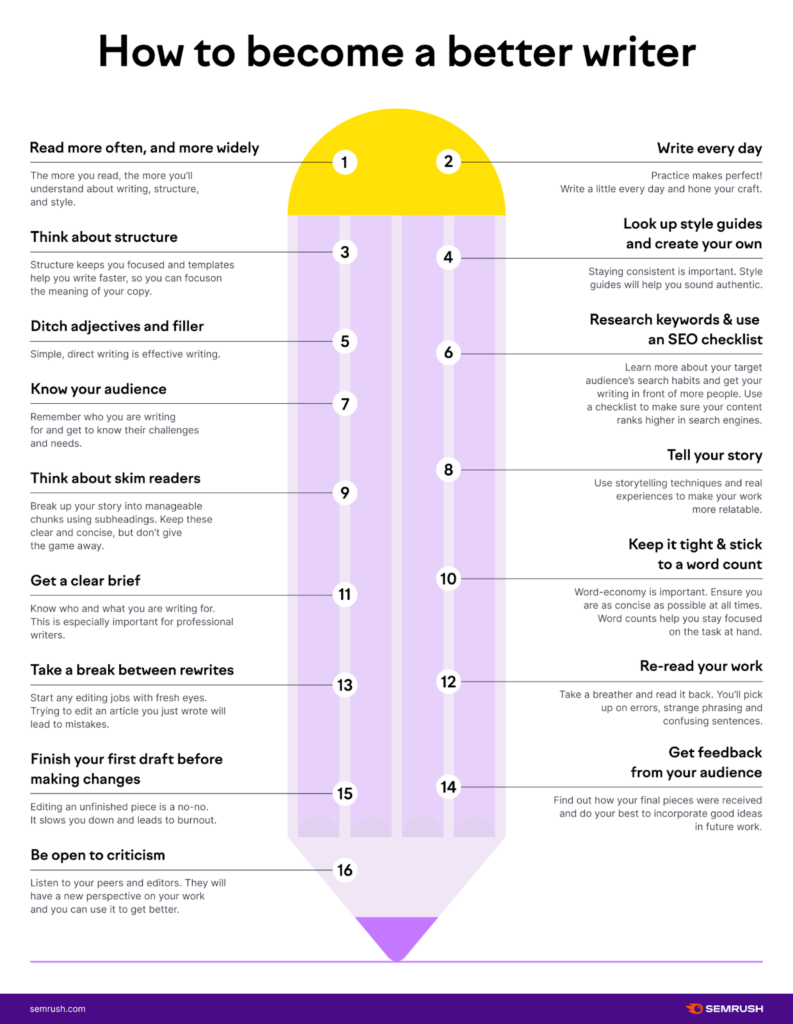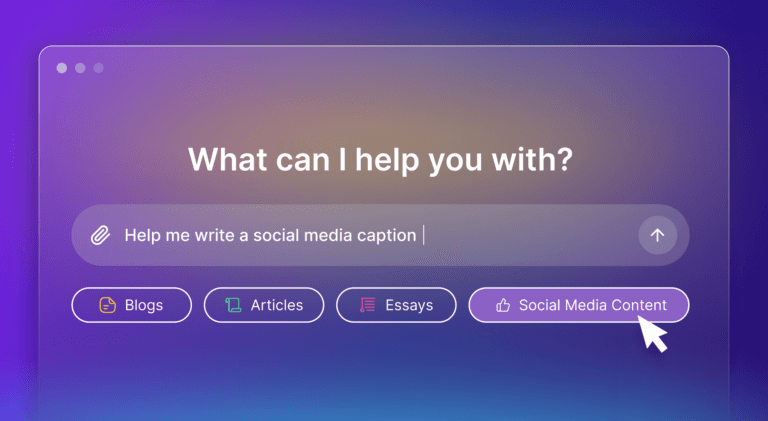
Table of Contents
- 23 Writing Tips by Famous Authors
- Key Takeaways
- Conclusion
- FAQs
If you want pointers for becoming a stronger writer, it is only intrinsic to look at those who could attain a great deal of success before you in literature. We can say with assurance that the work of the initial authors has brought to light many newer authors.
Jane Austen, an outstanding author from the 19th century, was a contemporary feminist and motivated thousands of women of more recent generations to come out and write about their lives. Mary Shelley, the pioneer of early science fiction, paved the way with Frankenstein–The Modern Prometheus. The Lord of the Rings series by JRR Tolkien has been a source of inspiration to JK Rowling for her famous Harry Potter series! So, it’s clear that excellent writing inspires good writing. So, here are some great creative writing tips from some of our favorite authors to help you become a fantastic writer!

23 Writing Tips given by Famous Authors
Jane Austen is an outstanding example for budding writers. Her stories give us innumerable and valuable tips.
- Create human characters: Even if you’re not writing about humans, keep in mind that your characters should be complex.
- Use subplots and use them well: Readers adore Jane Austen’s use of numerous themes throughout her novels. We witness characters dealing with similar problems and issues and responding differently.
- Strengthen your story continuously: You have a tale to tell, and each page of your work should advance the storyline.
- Tiny details may make a great difference in a tale: When they’re utilized correctly – which is, unsurprisingly, another skill Austen possessed – they add subtlety to the characters.
- Ensure that your dialogue is sharp: Natural dialogue is essential. Austen’s speech does seem a little strange to 21st-century ears, but it works!
- Now and again, we all need someone to give us a good nudge! As you begin or continue on your writing journey – a path that you will not abandon – there may be moments where you will require someone to motivate you in some manner. The following quote is by Paul Laurence Dunbar.
“What Joe Hamilton was missing, more than anything else in the world, was someone to kick him. Many men who may have lived decently and become fairly respectable citizens have gone to the dogs for someone to administer a good resounding kick at the right time. It is corrective and clarifying.” – Paul Laurence Dunbar.
- MJ McGrath is the Pan Macmillan-published author whose most recent book is The Bone Seeker. Create a motive, she advises! Hear it in her own words:
“Because the wants of its characters drive every story, the first question to ask when creating a character isn’t what they do or where they live, but what they want.’ Knowledge? Power? Forgiveness? Often, the character doesn’t realize what they want, making it more difficult for them to achieve it and drive the plot. The writer, on the other hand, is constantly aware. The writer continually keeps the characters’ deepest goals in mind and creates internal and external roadblocks.” – McGrath, MJ.
- In 1993, the Nobel Prize for Literature was awarded to Toni Morrison. Morrison compares “dead language,” which “thwarts the intellect, delays conscience, and inhibits human potential,” with the language used with knowledge and care in her Nobel talk. Morrison implies that it is preferable to approach great themes without attempting to make a definite statement without expressing “everything.” Tell the one genuine tale that has a significant impact on you or A story that delves into the topics and concepts vital to you. Later in the same lecture, Morrison says something that reminds us not to use dead language in our writing:
“Language can not live up to life once and for all. It shouldn’t, either. Language can never pin down slavery, genocide, and war. It should not yearn for arrogance to be able to do so. Its power, its joy, lies in its grasp for the ineffable.”- Toni Morrison.
- Wislawa Szymborska, a Polish poet who received the Nobel Prize for Literature in 1996, wrote a column for the Polish Journal, Literary Life, in which she offered guidance to aspiring authors. Szymborska gave an aspiring poet the following piece of writing advice (which also applies to fiction writers):
“You’ve crammed more high words into three short poems than most poets accomplish in a lifetime: ‘Fatherland,’ ‘truth,’ ‘freedom,’ ‘justice,’ such words don’t come cheap.’ They have real blood flowing through them, which ink cannot mimic.” – Wislawa Szymborska
- Gabriel Garcia Márquez, a Colombian novelist, is known for works like One Hundred Years of Solitude, full of fascinating characters. Márquez offered some writing tips. “My grandmother’s storytelling style inspired the tone I finally employed in One Hundred Years of Solitude. She spoke things that seemed otherworldly and wonderful, yet she did it in an entirely normal way. When I eventually figured out what tone I needed to employ, I got down and worked every day for eighteen months. I learned that I needed to believe in them myself and write them down with the same attitude that my grandmother had when she recounted them: a brick face.” – Gabriel Garcia Márquez.
- A chat with the Paris Review in 1994 revealed that the late Nigerian novelist Chinua Achebe spoke powerfully about the importance of representation and stating your truth via your writing:
“When I started school and learned to read, I came across stories about other people and places. I recall the kinds of things that intrigued me in the beginning. Strange things fascinated me since they were far away and somewhat ethereal. When I grew up, I learned about the dangers of not having your tales. There’s an adage that says- The history of the hunt will always praise the hunter until the lions have their own Historians” – Chinua Achebe.
- If you think about when your manuscript will be done, it’s easy to become impatient or overwhelmed. Instead, concentrate on the work at hand. According to John Steinbeck’s counsel, write just one page today: it’s one more page than you had yesterday. In the 1975 issue of the Paris Review, Steinbeck wrote (excerpted by The Atlantic here):
“Abandon the idea that you’ll ever finish. It helps to lose track of the 400 pages and write one page every day. Then you’re always surprised when it’s completed.” – John Steinbeck.
- Arundhati Roy is an Indian novelist well recognized for her poetry books and bold activism on environmental and social concerns. So, it was all the more fascinating when she responded to the somber interview question, “When did you know your childhood was over?”
“It’s not yet over! For authors, it should never be over. The folks I dread the most are those I can’t picture what type of child they were as a youngster. I had to be a fairly grownup child in certain respects because of the conditions in which I was raised and how I lived, and I’d prefer at least some part of me to be a quite childlike adult.” – Arundhati Roy.
- Putting one foot in front of the other, as Neil Gaiman says, “How do you complete them?” Gaiman advised a young writer when he was asked how to take the last steps toward finishing his works. “You’re the one who finishes them.” Many prizes have been bestowed onto Gaiman’s work, including the Newbury and Carnegie Medals.
“This is how you do it, you take a seat at the keyboard, and you put word after word until it is done. It is that easy, and that hard.” – Nei Gaiman

- As writers, we must safeguard our personal space from the numerous distractions we experience daily, says Zaidie Smith. Roommates, friends, family, and jobs may all make producing your best work challenging. You will feel depleted and exhausted if you are open to everyone and everything. When it comes to your job, protecting your personal space is not a bad idea.
“Preserve the time and place in which you write. Keep everyone away from it, even the people who are most important to you” – Zaidie Smith.
- Hundreds of writers choose to communicate their ideas using more precise language. We often believe that having a more extensive vocabulary equates better writing, but this is not the case. Hear it from Leonardo da Vinci-
“Simplicity is the ultimate sophistication.”
- Similarly, Ernest Hemingway talks about finding the state of flow and staying there. He says:
“There is nothing to writing. All you do is take a seat at a typewriter and bleed.”
- Another example of keeping it simple is from George Orwell. He talks about simplicity in writing by saying.
“Never use a lengthy word where you can use a short one!”
- Stephen King talks about the significance of reading. After all, writers read; writers read all the time!
“If you don’t have a time period in which you read, you don’t have the time or the device to become a writer”- Stephen King.
- Writers often stop writing because they are afraid of going wrong or being unsuccessful. For this exact reason, it’s essential to keep in mind Nora Roberts’ saying,
“You can repair anything but a blank page.”
- Jhumpa Lahiri, the author of The Namesake, has given plenty of quotes to inspire writers. About books, she wrote,
“That’s the thing about books, and they let you travel without moving your feet.”
- A solid motivation to create a novel, play, or short story is to improve your talent — to learn how to write better and more efficiently. In an open letter to NaNoWriMo dreamers, Australian author Peter Carey offered the following advice:
“You don’t need inspiration; all you need is a consistent practice of writing daily, even when you’re ill, depressed, or bored. Nothing, not even your precious children, can stop you. You should write in the hours before they wake up if you have children, as Toni Morrison did. You’ll need exceptional willpower if you want to be like the champion who swims for four hours every day of the year. You either possess it, or you do not, but the only way to find out is to try.”
- And lastly, let us hear from James Patterson, “Don’t think about articles; think about the story. Write the story down.”
Key Takeaways
- If you want pointers for becoming a stronger writer, it is only intrinsic to look at those who could attain a great deal of success before you in literature.
- Create human characters: Even if you’re not writing about humans, keep in mind that your characters should be complex.
- Tiny details may make a great difference in a tale: When they’re utilized correctly – which is, unsurprisingly, another skill Austen possessed – they add subtlety to the characters.
- Late Nigerian novelist Chinua Achebe spoke powerfully about the importance of representation and stating your truth via your writing.
- Ernest Hemingway talks about finding the state of flow and staying there.

Conclusion
In this blog, we have dived the inspiring words of several famous authors. These writers overcame prejudice, stereotypes, and more to reach the places their works came from. The Bronte sisters wrote under pseudonyms of men, and JK Rowling went with her initials to not be identified as a woman! We have made considerable strides to achieve the heights we have achieved in the writing industry. So get started on yours today and reach new heights!
FAQs
Listening to the words may inspire you, but paying attention to how people speak can help you create conversation. You could make up a narrative based on an odd conversation or a hilarious line you overhear. Keep your ears to the ground. Being nosy entails paying close attention to what is going on around you.
1. Be direct
2. Choose your words well.
3. Short sentences are more powerful.
4. Write short paragraphs.
5. Always use the active voice.
1. Grammar, spelling, and punctuation.
2. Concise language.
3. Research capabilities
4. Knowing the audience
5. Organization and structure.
Latest Blogs
Explore how Google’s 2025 AI search updates triggered ranking chaos. Learn actionable strategies to adapt your SEO for AI Overviews, zero-click searches, and SERP volatility. Stay ahead now.
Learn how to rank on AI search engines like ChatGPT, Perplexity, and Gemini by optimizing your content for authority, structure, and relevance. Stay ahead in AI-driven search with this strategic guide.
Explore the best healthcare SEO services for your medical practice. Improve online visibility and effectively reach more patients in need of your services.
Get your hands on the latest news!
Similar Posts

B2C Marketing
5 mins read
Top Choices for Best Content Marketing Services in B2B Industries

Artificial Intelligence
5 mins read
How A Lead Generation Specialist Can Use AI-Powered Content Funnels to Drive Conversions

Artificial Intelligence
4 mins read